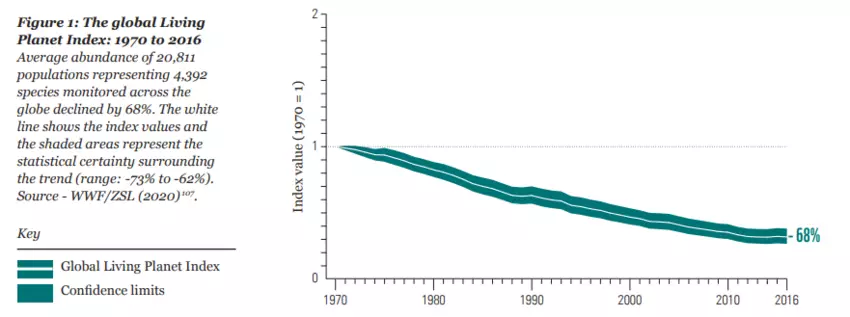- Joined
- Jul 17, 2020
- Messages
- 47,360
- Reaction score
- 26,060
- Location
- Springfield MO
- Gender
- Male
- Political Leaning
- Liberal
“Humanity is causing a rapid loss of biodiversity and, with it, Earth’s ability to support complex life. But the mainstream is having difficulty grasping the magnitude of this loss, despite the steady erosion of the fabric of human civilization” Professor Bradshaw says.
“In fact, the scale of the threats to the biosphere and all its lifeforms is so great that it is difficult to grasp for even well-informed experts.”
“The problem is compounded by ignorance and short-term self-interest, with the pursuit of wealth and political interests stymying the action that is crucial for survival,” he says.
“Humanity is running an ecological Ponzi scheme in which society robs nature and future generations to pay for short-term economic enhancement today.”
“Most economies operate on the basis that counteraction now is too costly to be politically palatable. Combined with disinformation campaigns to protect short-term profits it is doubtful that the scale of changes we need will be made in time” Professor Ehrlich says.
“Human population growth and consumption continues to escalate, and we’re still more focused on expanding human enterprise than we are on devising and implementing solutions to critical issues such as biodiversity loss. By the time we fully comprehend the impact of ecological deterioration, it will be too late.”
The experts say their ‘perspective’ paper, which cites more than 150 studies, seeks to outline clearly and unambiguously the likely future trends in biodiversity decline, mass extinction, climate disruption, planetary toxification, all tied to human consumption and population growth to demonstrate the near certainty that these problems will worsen over the coming decades, with negative impacts for centuries to come. It also explains the impact of political impotence and the ineffectiveness of current and planned actions to address the ominous scale of environmental erosion.

“In fact, the scale of the threats to the biosphere and all its lifeforms is so great that it is difficult to grasp for even well-informed experts.”
“The problem is compounded by ignorance and short-term self-interest, with the pursuit of wealth and political interests stymying the action that is crucial for survival,” he says.
“Humanity is running an ecological Ponzi scheme in which society robs nature and future generations to pay for short-term economic enhancement today.”
“Most economies operate on the basis that counteraction now is too costly to be politically palatable. Combined with disinformation campaigns to protect short-term profits it is doubtful that the scale of changes we need will be made in time” Professor Ehrlich says.
“Human population growth and consumption continues to escalate, and we’re still more focused on expanding human enterprise than we are on devising and implementing solutions to critical issues such as biodiversity loss. By the time we fully comprehend the impact of ecological deterioration, it will be too late.”
The experts say their ‘perspective’ paper, which cites more than 150 studies, seeks to outline clearly and unambiguously the likely future trends in biodiversity decline, mass extinction, climate disruption, planetary toxification, all tied to human consumption and population growth to demonstrate the near certainty that these problems will worsen over the coming decades, with negative impacts for centuries to come. It also explains the impact of political impotence and the ineffectiveness of current and planned actions to address the ominous scale of environmental erosion.

Experts Say Humanity Faces a Grim and “Ghastly Future” – State of Planet Is Much Worse Than Most People Understand
The state of the planet is much worse than most people understand and that humans face a grim and "ghastly future" unless extraordinary action is taken soon. A loss of biodiversity and accelerating climate change in the coming decades coupled with ignorance and inaction is threatening the surviva
scitechdaily.com


